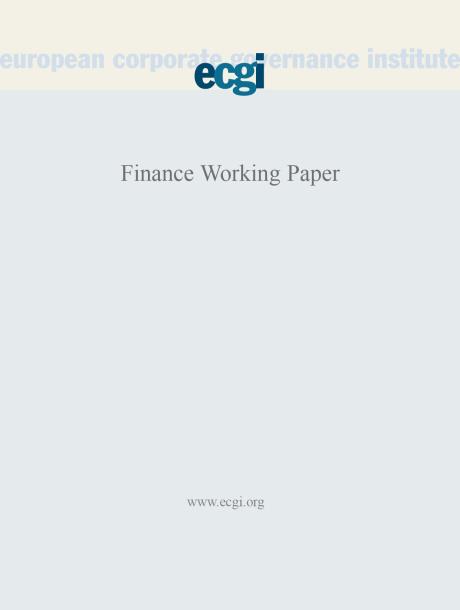
Leveraged Buyouts: An Overview of the Literature
Abstract
This paper provides an exhaustive literature review of the motives for public-to-private LBO transactions. First, the paper develops the theoretical framework for the potential sources of value creation from going private: a distinction is made between the reduction in shareholder-related agency costs, stakeholder wealth transfers, tax benefits, transaction costs savings, takeover defense strategies, and corporate undervaluation. The paper then reviews and summarizes how these theories have been empirically verified in the four different strands of literature in LBO research. These strands of literature are categorized by phase in the LBO transaction: Intent (of a buyout), Impact (of the LBO on the various stakeholders), Process (of restructuring after the leveraged buyout) and Duration (of retaining the private status). Then, the paper shows that in the first half of the 2000s, a public-to-private LBO wave re-emerged in the US, UK and Continental Europe, whose value vastly exceeds that of the 1980s US LBO wave. Finally, the paper provides suggestions for further research.







